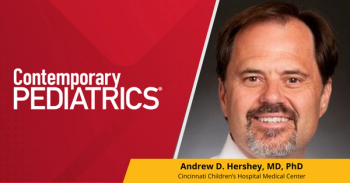
Selpercatinib approved for solid tumor, RET-altered metastatic thyroid cancer patients 2 years and older
The therapy was previously granted accelerated approval for the thyroid cancer indications in adults and pediatric patients aged 12 years and older.
The FDA has granted accelerated approval to selpercatinib (Retevmo; Eli Lilly and Company) for pediatric patients aged 2 years and older with RET-altered metastatic thyroid cancer or solid tumors, the federal agency announced in a press release.1
Specifically, selpercatinib is approved for those aged 2 years and older with1:
- Advanced or metastatic medullary thyroid cancer (MTC) with a RET mutation, as detected by an FDA-approved test, who require systemic therapy.1
- Advanced or metastatic thyroid cancer with a RET gene fusion (detected by FDA-approved test), who require systemic therapy and who are radioactive iodine-refractory.1
- Locally advanced or metastatic solid tumors with a RET gene fusion (detected by FDA-approved test) that have progressed on or following previous systemic treatment or who have no satisfactory alternative treatment options.1
Selpercatinib is the first targeted therapy approved for pediatric patients younger than 12 years of age with RET alterations. The therapy was previously granted accelerated approval for the thyroid cancer indications in adults and pediatric patients aged 12 years and older.1
The LIBRETTO-121 trial (NCT03899792), an international, single-arm, multi-cohort, phase ½ trial, evaluated efficacy in pediatric and young adult patients. Individuals received 92 mg / m2 orally trice per day until disease progression, unacceptable toxicity, or other reasons for discontinuation from treatment. The primary efficacy population consisted of 25 patients aged 2 to 20 years with locally advanced or metastatic RET-activated solid tumors that were non-responsive to available therapies or with no standard systemic therapy available.1,2
Confirmed overall response rate (ORR) and duration of response (DOR) were major efficacy outcome measures in the trial. Determined by a blinded independent review committee, the confirmed ORR was 48% (95% CI: 28, 69). Median DOR was not reached (95% CI: not evaluable), with 92% of responders remaining in response at 12 months according to the FDA.1
Durable responses were observed in young adult and pediatric patients with RET-mutant MTC (n = 14; ORR 43% [95% CI: 18%, 71%]) and RET fusion-positive thyroid cancer (n = 10; ORR 60% [95% CI: 26%, 88%]).1
Musculoskeletal pain, diarrhea, headache, nausea, vomiting, coronavirus infection, abdominal pain, fatigue, pyrexia, and hemorrhage were the most common adverse reactions (≥25%). Decreased calcium, decreased hemoglobin, and decreased neutrophils were the most common Grade 3 or 4 laboratory abnormalities (≥5%).1
Recommended dosing of selpercatinib for pediatric patients aged 2 to less than 12 years of age is based on body surface area, whereas weight-based dosing is used for patients aged 12 years and older.1
References:
1. FDA grants accelerated approval to selpercatinib for pediatric patients two years and older with RET-altered metastatic thyroid cancer or solid tumors. FDA. Press release. May 29, 2024. Accessed May 30, 2024. https://www.fda.gov/drugs/resources-information-approved-drugs/fda-grants-accelerated-approval-selpercatinib-pediatric-patients-two-years-and-older-ret-altered
2. A Study of Oral LOXO-292 (Selpercatinib) in Pediatric Participants With Advanced Solid or Primary Central Nervous System (CNS) Tumors (LIBRETTO-121). ClinicalTrials.gov. Updated March 7, 2024. Accessed May 30, 2024. https://clinicaltrials.gov/study/NCT03899792
Newsletter
Access practical, evidence-based guidance to support better care for our youngest patients. Join our email list for the latest clinical updates.








